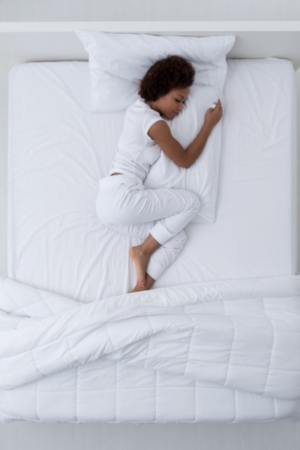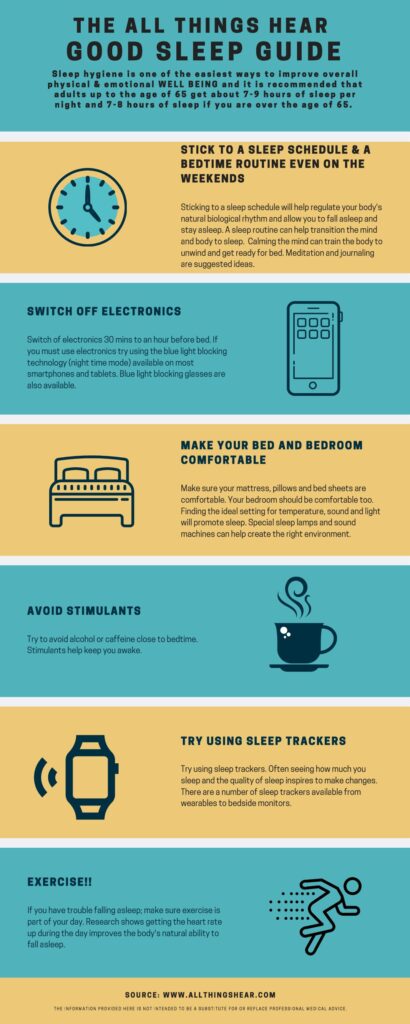
A Good Night’s Sleep, takes work.
One of the best things about being an audiologist and treating hearing loss is developing relationships with my patients. I learn about all aspects of my patients lives, in an effort to gain a better understanding of how their hearing issues impact their lives. A frequent topic of conversation that comes up is SLEEP. My patients often tell about their sleep issues which include lack of sleep and the inability to fall asleep. In recent years there has been a lot of interest in sleep and how bad we are at it, so much so that the CDC announced it as a public health emergency. It is clear from the research that getting a good night sleep helps in many aspects of health and wellness and more specifically some recent studies have shown there are links between hearing health and sleep. These studies show connections between poor sleep quality in those that have a hearing impairment and those that have tinnitus. In addition higher rates of insomnia have been found in people that have low frequency hearing impairment and are also subject to occupational noise exposure.
Poor sleep, poor hearing?
Due to the complex mechanisms of sleep we still have a lot to learn about sleep and hearing health. It is thought that lack of sleep causes poor blood circulation damaging the inner ear. In addition to poor blood circulation, oxidative stress is also thought to damage the inner ear by creating free radicals which in turn damage the inner ear. Lack of sleep also negatively impacts cognitive function which can lead to listening fatigue especially listening to noise.
As this body of research grows it’s becoming harder to argue against the health benefits of sleep. It seems that improving your sleep hygiene is one of the easiest ways to improve physical and emotional well being. Here’s what I recommend to my clients;

Other Recommendations
Books & websites
I also recommend The Sleep Revolution Book by Arianna Huffington- This book hands down changed by relationship with sleep. It contains lots of valuable resources including the sleep quality questionnaire.
Products
Sleep trackers are helpful tools to help monitor your sleeping and improve it. There are a number of sleep trackers available from wearables to bedside monitors. I personally use the Oura ring since it’s lightweight and comfortable with excellent sleep data available.